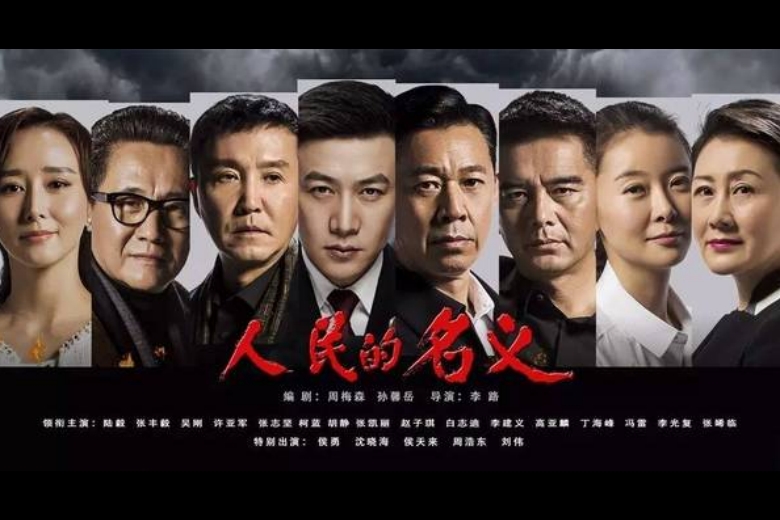China's House of Cards drama sizzles as Xi Jinping cracks whip on graft
Sign up now: Get ST's newsletters delivered to your inbox

In the Name of the People is built around fictional internal power plays within the ruling Communist Party.
Follow topic:
A drama series featuring high-level government corruption, the chronic hot-button issue in China, is making waves among Chinese viewers - with the apparent blessings of the ruling Communist Party.
Starring a "deputy state-level official" as the villain, and replete with foreign mistresses, SWAT operations and a bed made of banknotes, In the Name of the People had received 170 million views by Tuesday since its March 28 debut on Aiqiyi.com, one of the mainland websites and television channels licenced to broadcast it, Hong Kong's South China Morning Post reported.
The 56-episode TV series, which stars veteran actors Lu Yi and Zhang Fengyi and is slated to run nightly until May 1, is built around a complex corruption case brought to light by conflict at a factory in a fictional province.
It focuses on the work of anti-graft investigators whose job is to take down corrupt government officials, whether "tiger" (powerful bureaucrats) or "fly" (low-ranking officers), in the parlance of real-life Chinese President Xi Jinping, who has waged war on corruption since taking over power in 2012.
Media outlets like CNBC and SCMP have likened the series to American political drama House of Cards.
In the Name of the People is built around fictional internal power plays within the ruling Communist Party as well as the lifestyles of senior officials, although it ultimately hails the anti-corruption campaign of Chinese President Xi Jinping and his key ally, Wang Qishan, noted SCMP.
"It has some significance as a 'main theme' drama premiering before the 19th Congress of the Communist Party of China," Wan Yuchen, an analyst at the China Market Research Group, told CNBC in an email.
The term "main theme" is often used to refer to productions, including films and television series, that feature similar overarching themes with government policies, Wan explained.
The 19th Party Congress, expected to be held in the autumn, will see President Xi looking to further cement his grip on power.
Although formal regulations banning the broadcast of television shows about corruption have never been issued, Chinese producers have avoided the topic after a 2004 "recommendation" from the country's media watchdog, reported CNBC.
That recommendation suggested that works about anti-corruption not be broadcast during primetime hours to "protect the youth."
The recommendation has since been rolled back. The State Administration of Press, Publication, Radio, Film and Television (SAPPRFT) told local media that it has commissioned at least two films and two television shows focusing on bribery each year, trade publication China Film Insider reported.
Indeed, Fan Ziwen, deputy director of the Supreme People's Procuratorate's Film and Television Centre, had repeatedly visited Zhou Meisen, the writer of the novel on which the TV series is based, to persuade him to pen the drama's screenplay, China Daily reported.
The drama secured funding of 120 million yuan from five private companies - twice the amount of the average TV series.
Its portrayal of power groups inside the party, such as "secretary gang" and the "political legal affairs gang", echo real fallen political factions led by former president Hu Jintao's disgraced personal secretary Ling Jihua, and former Politburo Standing Committe member Zhou Yongkang, one of the country's most powerful men, reported SCMP.
A wall of stacked banknotes reminds the audience of Wei Pengyuan, a former deputy director of the coal department at the National Energy Administration, who hid cardboard boxes brimming with cash stuff underneath a bed mattress in his otherwise empty apartment in Beijing.
Many lines from the drama have found their way into common usage, such as "people toast him not because he is a good person, but because he has power".

